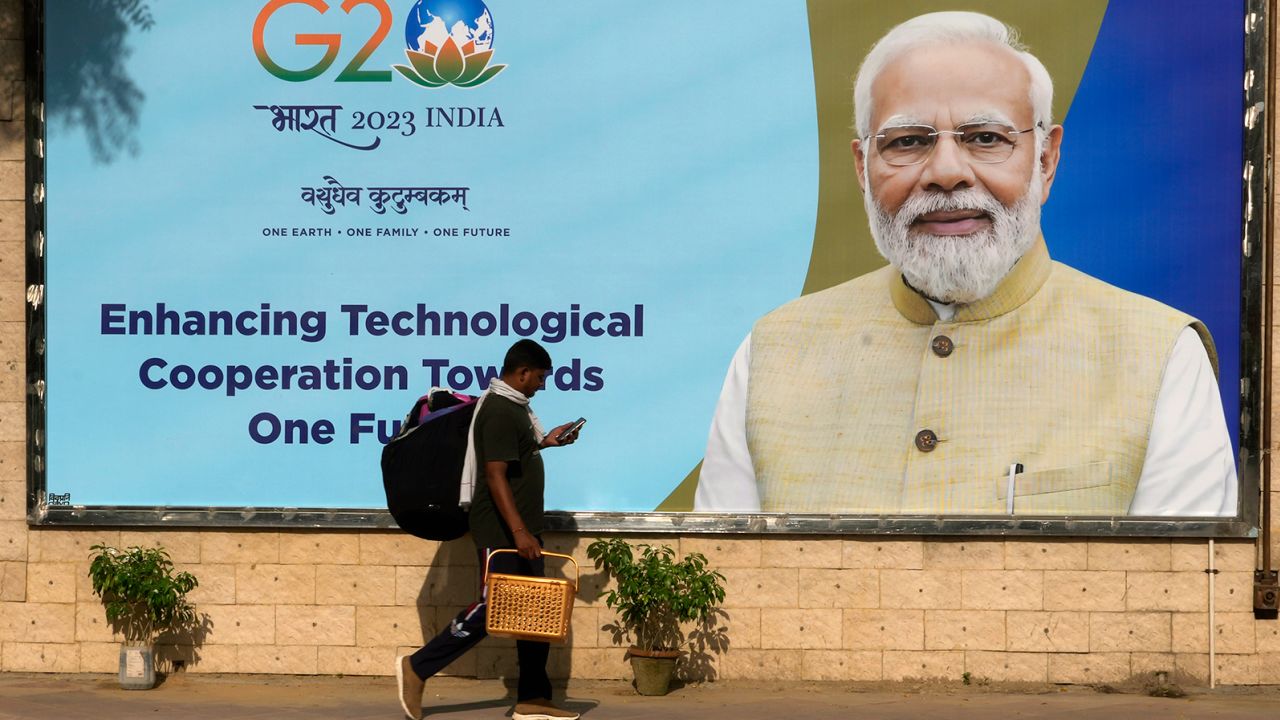Introduction
India’s ascension to the G20 presidency, in conventional realist jargon, can be interpreted as proof of its growing influence in the global world order. It was a moment of pride as Delhi became a center of global attention for the three-day event that brought together leaders from the most influential nations to deliberate and develop a consensus on international matters. However, as time has passed, India’s G20 presidency can be argued as an effort to bolster the ruling party’s electoral credentials in the run to 2023 polls. This perception shift raises important questions about India’s role in the international arena, its democratic values, and the priorities it should endorse.
The G20, comprising the world’s major economies, has been utilized by India as a platform to advocate a more substantive participation by the Global South in international affairs. This positioning arises from valid criticisms of existing world leadership forums that still prioritize first-world powers in international politics. However, it is crucial to examine whether this pursuit should come at the expense of pressing domestic problems, that are issues like freedom of press and expression, and the state of civil society in India.
Delhi’s Transformation for the Summit
New Delhi’s preparations for the G20 summit have been truly remarkable. The city has undergone an extensive makeover, carefully curated to portray India as a global leader. True to the trends of image-conscious politics that have emerged in the last decade in the country, India wished to be something it is not. Slums and rudimentary housing have been shielded from view behind vibrant green screens adorned with multicultural imagery and the images of key politicians. The intention has been to mask poverty with decoration. While this transformation underscores India’s ambition to assert itself as a global leader, it also prompts essential questions about the validity of the projected image and the underlying socioeconomic disparities it wished to hide.
These disparities encompass both economic and social aspects. The three-day shutdown has had a significant impact on the lives of 32 million Delhi residents, including those reliant on daily wage labour for their livelihoods. Around 4,000 homeless individuals have been relocated to shelters on the outskirts of the city as part of an effort to conceal poverty from plain view. Lawns have been impeccably groomed, and trees have been swiftly planted as part of this enhancement endeavour. In line with this beautification process, stray dogs have been removed from the city – these stray dogs are often associated with developing countries, and their presence on the streets symbolizes such nations.
In alignment with the narrative promoted by the current government, the beautification process for the G-20 Summit is characterized by the elimination of elements that might be seen as indicators of India’s economic challenges. In the context of India’s global aspirations, this “other” encompasses anything and everything that could be a representation of India’s poverty.
Democratic Decline?
India’s claim to global leadership is laudable but not without necessary questions. To begin with, how successful is India in addressing the challenge from Hunger as it ranks 107 out of 121 on the Global Hunger Index. We should also take into account the assessment from the Freedom House, which designates it as ‘Partly Free’. This raises concerns that stand in stark contrast to the projected image of perfection and economic prosperity, which has predominantly benefited a select class, caste, and gender, and still does so.
Furthermore, the Gothenburg University’s V-Dem Institutes Democracy Report of 2022 paints a troubling picture of India as well. This unsettling trend contradicts India’s assertions of global leadership. A country aiming to position itself as a contemporary global leader must be held accountable for the problems it faces. The G20 presidency should not be wielded as a shield, allowing India to escape scrutiny, simply because it has a certain geopolitical role to play.
Civil Liberties
The challenges faced in Manipur or the tragic suicides of Dalit students at prestigious institutions like IITs and IIMs cannot be ignored. The G20 presidency demands that India confront its internal challenges alongside its global aspirations. India’s declining performance on various indices is problematic. It begs the question of whether the nation can credibly champion democratic values on the world stage when it is faltering at home. The G20 presidency must be an opportunity for introspection and improvement, rather than a diversion from pressing domestic issues.
The G20’s theme of “One Earth, One Family, One Future” emphasizes the need for collaborative and cooperative solutions to global challenges, especially for climate change. This theme has resonated with the international community, highlighting the importance of unity in tackling global issues. However, this same principle should apply to India’s national narrative, which has turned increasingly divisive in recent years.
Conclusion
India’s G20 presidency was initially hailed as a testament to its growing influence in the global world order. However, it is increasingly felt that concerns about domestic issues, democratic values, and human rights seem relegated amidst the international fanfare. The transformation of Delhi for the summit may present a shiny facade, but it cannot hide the underlying challenges India faces.
As India assumes a leadership role on the global stage, it must address its internal problems head-on, ensure the protection of human rights, and uphold the democratic values of every community dwelling in this country. The G20 presidency should not be a distraction from these crucial responsibilities but an opportunity to showcase India’s commitment to both its citizens and the world. In the end, only when one’s internal problems are addressed one can champion global causes.
Image – CNN

